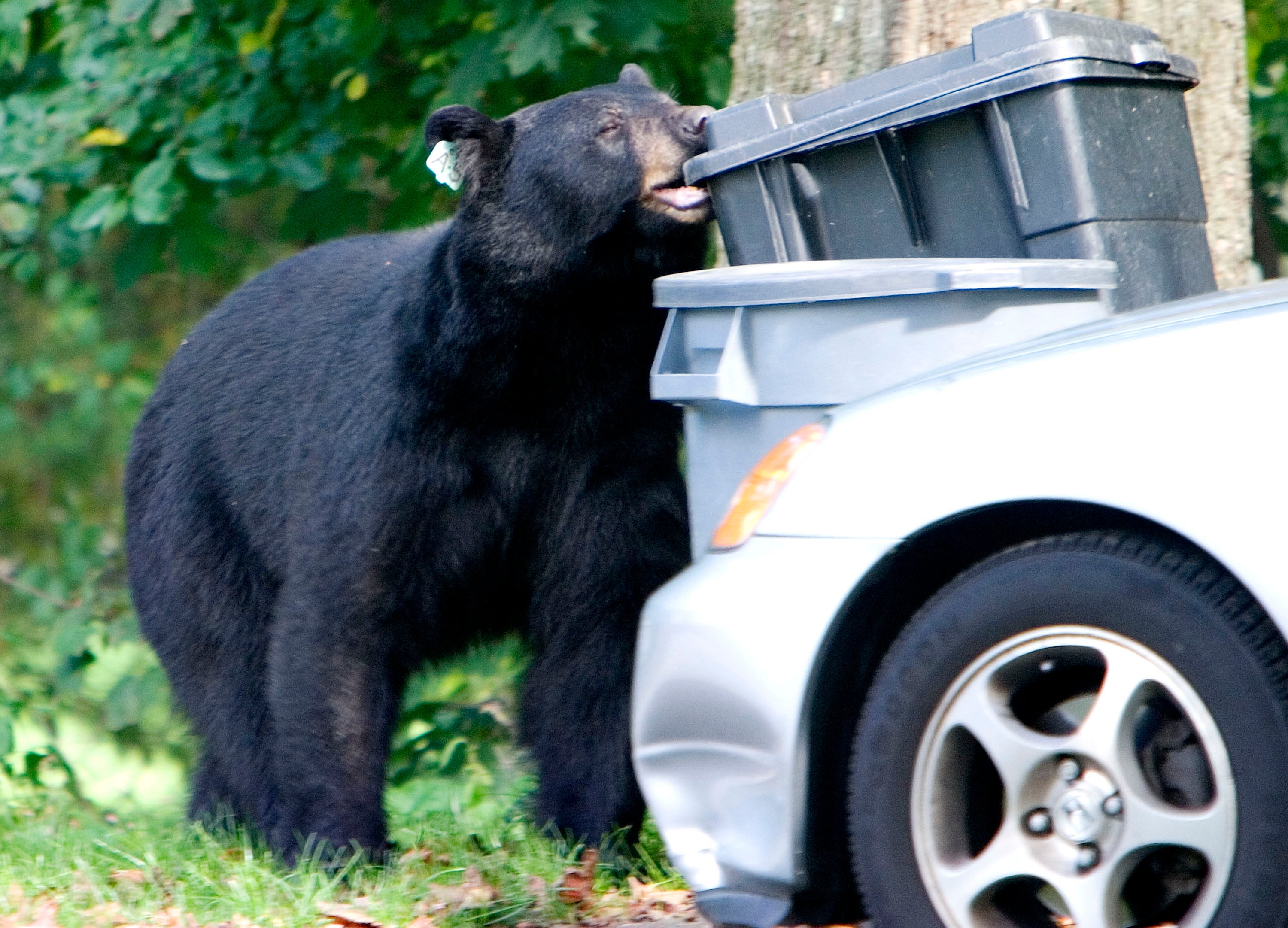Connecticut lawmakers vote to allow people to use deadly force as the bear population grows
Connecticut lawmakers have voted to take steps to protect people from the state’s growing bear population

Your support helps us to tell the story
From reproductive rights to climate change to Big Tech, The Independent is on the ground when the story is developing. Whether it's investigating the financials of Elon Musk's pro-Trump PAC or producing our latest documentary, 'The A Word', which shines a light on the American women fighting for reproductive rights, we know how important it is to parse out the facts from the messaging.
At such a critical moment in US history, we need reporters on the ground. Your donation allows us to keep sending journalists to speak to both sides of the story.
The Independent is trusted by Americans across the entire political spectrum. And unlike many other quality news outlets, we choose not to lock Americans out of our reporting and analysis with paywalls. We believe quality journalism should be available to everyone, paid for by those who can afford it.
Your support makes all the difference.Connecticut lawmakers voted Friday to take steps to protect people from the state's growing bear population. But they stopped far short of a bear hunt and restrictions on people unintentionally feeding the hungry animals.
The legislation, which cleared the House of Representatives on a 115-32 vote after being revamped by the Senate, instead explicitly allows someone to use deadly force to kill a bear in Connecticut if they reasonably believe it's inflicting or about to inflict great bodily harm to a person, a pet or is entering an occupied building.
“This is just taking away second-guessing to defend what we love,” said Republican Rep. Patrick Callahan, whose northwestern Connecticut district has seen a lot of bear activity in recent years.
The bill, which now moves to Democratic Gov. Ned Lamont's desk, has been one of the most emotional issues of this year's legislative session. It has pitted legislators who want to protect the animals against those whose constituents are afraid to let their children play in their yards.
Reports of bears interacting with humans have become commonplace in Connecticut. Last month, a hungry black bear barged into the garage of a bakery in the suburban community of Avon, scared several employees and helped itself to 60 cupcakes before ambling away. The intrusion was caught on surveillance tape.
A 74-year-old woman suffered bites to her arms and legs in April when she was attacked by a bear while walking her dog in a Hartford suburb, the first such attack this year. There were two attacks last year, including one in October where a 10-year-old boy was mauled in a backyard.
The state Department of Energy and Environmental Protection (DEEP), which estimates there are 1,000 to 1,200 bears in the state, has advocated for a limited bear hunt. That idea, however, has been very controversial and was removed from the bill in March.
According to DEEP, bears entered residential homes 67 times in 2022, eclipsing the previous record of 45 home invasions. The agency said bears entered homes in Connecticut less than 10 times annually just seven years ago.
Under the bill headed to the governor, the state agency can issue nuisance wildlife permits to kill “certain wildlife,” including bears, that threaten or cause damage to agricultural crops, livestock and apiaries -- a concept supported by many of the state's farmers. In order to obtain a permit, the landowner must prove they have made nonlethal attempts, such as electric fencing, to thwart the bears.
Some critics of the bill expressed concern that people might take advantage of these permits, arguing the legislation could be abused.
The bill also prohibits people from intentionally feeding potentially dangerous animals, including bears, on private land, making the violation an infraction. Originally, it included restrictions on unintentionally feeding the bears, such as leaving trash accessible and hanging birdfeeders, but that was stripped in the Senate, to the dismay of some House members.
Democratic Rep. Mary Mushinsky said Connecticut needs a Bear Smart program to teach residents how to safely coexist with bears, like what is in place in other states.
“Remember, we have unfinished business to make our state a Bear Smart state,” she told her colleagues. She and other lawmakers predicted the issue will come up again next year.